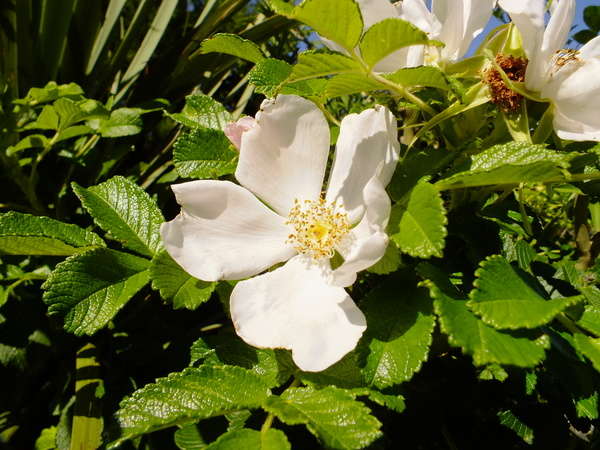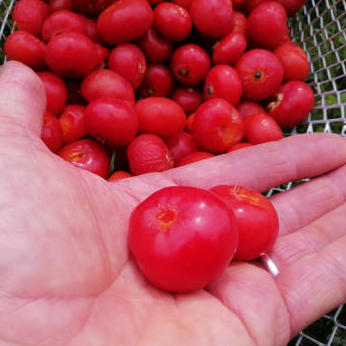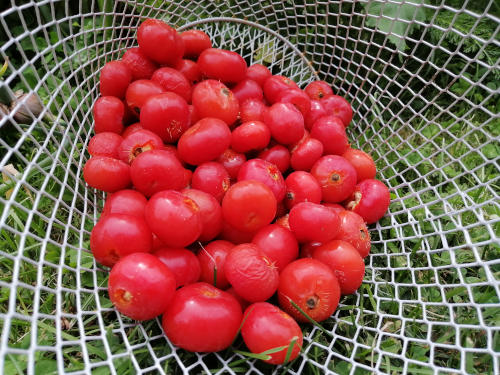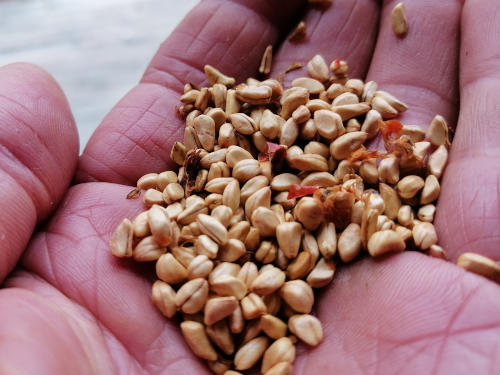Rosa Rugosa Seeds






Rosa rugosa, commonly known as rugosa rose or Japanese rose, is a species of flowering shrub in the Rosaceae family. It is native to eastern Asia and has become naturalized in various parts of the world.
1. Hardy Shrub: Rosa rugosa is a hardy deciduous shrub that can reach a height of 1.2 to 1.8 meters with a similar spread. It has a dense and spreading growth habit with multiple stems.
2. Flowers: The flowers of Rosa rugosa are large and showy, typically measuring around 5 to 7.5 centimeters in diameter. They bloom in various colours, including shades of pink, white, and red. The flowers are fragrant and have a delightful scent.
3. Foliage: The leaves of rugosa rose are dark green, glossy, and deeply veined. They provide an attractive backdrop to the colourful flowers and turn yellow or orange in the fall, adding to the visual interest.
4. Hips: One of the distinctive features of Rosa rugosa is its large and ornamental hips. Hips are the fruit of roses, and in rugosa roses, they are typically bright red and persist on the shrub well into winter, adding beauty and interest to the landscape.
5. Thorns: Like many rose species, Rosa rugosa has thorny stems, which can serve as a deterrent against unwanted intruders and provide added protection for nesting birds.
1. Ornamental Gardens: Rugosa roses are widely used in ornamental gardens and landscapes for their attractive flowers, foliage, and hips. They can be used as hedges, borders, or as standalone specimens to add colour and beauty to outdoor spaces.
2. Salt Tolerance: Rosa rugosa is highly tolerant of coastal conditions, including salty air, sandy soil, and strong winds. This makes it an excellent choice for seaside gardens or areas with challenging growing conditions.
3. Erosion Control: The spreading growth habit and extensive root system of rugosa rose make it useful for controlling erosion on slopes and coastal areas. Its deep roots help stabilize the soil and prevent erosion.
4. Wildlife Attraction: The flowers of Rosa rugosa attract pollinators like bees and butterflies, while the hips provide a food source for birds and other wildlife. It contributes to biodiversity and can support local ecosystems.
5. Medicinal Use: Rugosa rose hips are rich in vitamin C and are often used to make herbal teas, jams, jellies, and syrups. They are believed to have various health benefits, including boosting the immune system and providing antioxidants. However, it's important to consult a healthcare professional before using them for medicinal purposes.
6. Rosehip Oil: The seeds inside the rose hips of Rosa rugosa are a source of rosehip oil, which is used in skincare products. Rosehip oil is known for its moisturizing and nourishing properties and is believed to help improve the appearance of scars, wrinkles, and dry skin.